Black elderberry or sambucus nigra is a bushy plant native to the warmer parts of Europe and North America. They hang in clumps from reddish purple stalks and turn from green to red to black as they grow. Experts explains that the of flavonoids and lignans in elderberries act as important antioxidants, fortifying the immune response to inflammation and viruses.
What is Sambucol?
Sambucol has been developed by scientists and is recommended by experts. Sambucol is made from black elderberries which have twice the natural antioxidant capacity of blueberries and more than 50 percent the overall antioxidant capability of cranberries. It is produced from whole black elderberries and has the equivalent of up to 1000 black elderberries in every 120 ml bottle. Sambucol was shown to be effective in vitro against ten strains of influenza virus.
Elderberry Benefits
Black elderberries are rich in anthocyanins which are a type of flavonoid anthocyanins repair and protect genomic DNA integrity. Free radicals are molecules with one or more unpaired electrons. As a result of their instability they steal electrons from other cells. When an antioxidant loses an electron, it remains stable and thus does not itself become a free radical. Research carried out at Tufts University has revealed that black elderberry contains 4 anthocyanins that work to protect endothelial cells, which line artery walls, from oxidative damage caused by free radicals. Black elderberry reduces the susceptibility of the body to experience stress and shortens recovery time from exhaustion brought about by physical exertion. Endocrinologist Dr. Sepp Porta conducted stress studies using elderberry concentrate on a group of volunteers. After ten days, concluded that a daily intake of the elderberry extract has a useful effect on stress.
Antiviral
Black elderberry contains compound called Antivirin that can help protect healthy cells and inactivate infectious viruses. During an in-vitro study black elderberry extract was found to be at least 99% effective against the H5N1 strain otherwise known as Avian Bird Flu. During an in-vitro study by “Retroscreen Virology” in October 2009, black elderberry extract was found to be at least 68.37% effective against the H1N1 strain otherwise known as Swine Flu Pandemic strain. A study done in Israel on the anti-viral activity of black elderberries extract showed that in vitro black elderberry extract inhibited the replication of a number of strains of influenza A and B in cell cultures. Israeli virologist Dr. Madeleine Mumcuoglu says black elderberry (Sambucol) blunts the haemaglutinin spikes on the outside of viruses and stops them from entering cells where they reproduce, cause the cell to explode and allow the virus to continue invading the body. In addition, black elderberry has the ability to protect against as many as 8 flu strains, as opposed to the flu shot which protects against only one strain. It contains Sambucus nigra agglutinins, which help prevent some types of flu from infecting healthy cells.
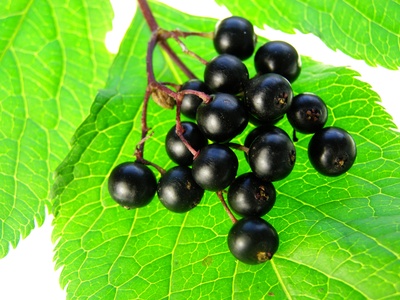 A study conducted at the “Immunology Lab at Hadassah University Hospital” in Israel, concluded that standardized elderberry extract (Sambucol) was effective for reducing flu duration and for bolstering the immune system. In a study, people who were given a patented elderberry extract (Sambucol), showed more antibody response to the influenza virus than those who didn’t receive it. In addition, this study showed that elderberry extract stimulates the immune system to produce infection and disease fighting proteins. A specific syrup containing elderberry juice taken by mouth seems to reduce the symptoms and length of flu symptoms when given within 24-48 hours of the first symptoms. One study suggested that using a standardized elderberry extract (Sambucol), could shorten the duration of flu by about three days.
A study conducted at the “Immunology Lab at Hadassah University Hospital” in Israel, concluded that standardized elderberry extract (Sambucol) was effective for reducing flu duration and for bolstering the immune system. In a study, people who were given a patented elderberry extract (Sambucol), showed more antibody response to the influenza virus than those who didn’t receive it. In addition, this study showed that elderberry extract stimulates the immune system to produce infection and disease fighting proteins. A specific syrup containing elderberry juice taken by mouth seems to reduce the symptoms and length of flu symptoms when given within 24-48 hours of the first symptoms. One study suggested that using a standardized elderberry extract (Sambucol), could shorten the duration of flu by about three days.
Elderberry and Sinus
Some studies suggests that chemicals in elder flower and berries may help reduce swelling in mucous membranes, such as the sinuses, and help relieve nasal congestion. Lab studies have shown that elderberry reduces excessive sinus mucus secretion, and some studies suggest that elderberry can help lessen swelling of mucous membranes, improve sinus drainage, and decreased nasal congestion in those with bacterial sinusitis. Black elderberry has been reported to have positive effects when used with antibiotics to treat sinus infection. Black elderberry reduce the swelling of the mucous membranes, and if it is taken along with an antibiotic such as doxycycline and a decongestant, it can help diminish the time you suffer from the infection. Tannin and viburnic acid – present in elderberries, these elements improve breathing and provide relief from nasal congestion.
Immune System
Elderberries have been recognized for centuries throughout Europe for their immune supportive properties. New research has identified flavonoid compounds, called anthocyanins, which may be directly related to their health promoting properties. Scientists conducting studies on elderberry showed that elderberry anthocyanins enhance immune function by boosting the production of cytokines. Cytokines play a very critical role in the immune system’s response to disease. Regulate immunity, hematopoiesis and inflammation. There are several types of cytokines including interleukins, interferons and tumor necrosis factors. Inflammatory cytokines are immune system mediators. Researches indicates that elderberries (Sambucol) might be able to increase immune system function in people with cancer and AIDS.
Elderberry Syrup Dosage
Elderberry supplements can be purchased as caplets, lozenges, syrup, tincture and extract. Clinical trials on patients with influenza suggest using the standardized liquid extract for 3 to 5 days starting at the first sign of flu symptoms. Syrup (contains 3.8 g standardized liquid extract (2:1) per 10 ml syrup): For daily maintenance; Adults: 2 teaspoons daily. Children: 1 teaspoon daily. For maximum benefit; Adults: 2 teaspoons 4 times daily. Children: 1 teaspoon 4 times daily. Lozenges (contains 130 mg standardized dry extract and 100 mg vitamin C): Adults: 2 lozenges 3 times daily. Children: 1 lozenge 4 times daily.
Side Effect
Uncooked or unripe elderberries are toxic and cause nausea, vomiting, or severe diarrhea. The danger starts mainly from the stems, roots and leaves. So, consuming a large quantity of these parts of the plant, can cause accumulation of a high rate of cyanide in the body. Elderberry extract should not be taken in conjunction with drugs that suppress the immune system, such as corticosteroids.
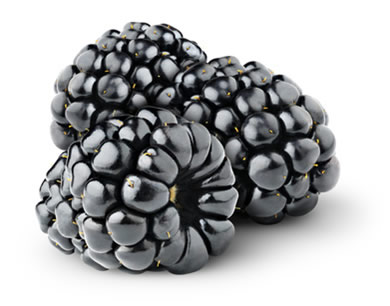 Scientists from the “Universidade Nova de Lisboa” analyzed two specific species of blackberries,
Scientists from the “Universidade Nova de Lisboa” analyzed two specific species of blackberries, 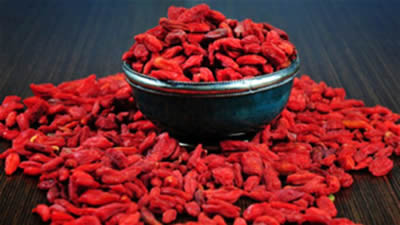 Several types of phytonutrients in the fruit enhance the health of the liver to detoxify and guard against the organ being damaged by carcinogens and the hepatitis virus. In a study conducted in 2002, found that
Several types of phytonutrients in the fruit enhance the health of the liver to detoxify and guard against the organ being damaged by carcinogens and the hepatitis virus. In a study conducted in 2002, found that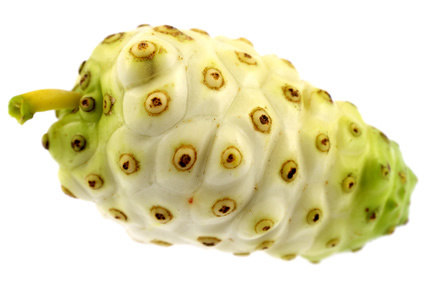 Noni possesses anti tumor activity by stimulating immune factors like
Noni possesses anti tumor activity by stimulating immune factors like 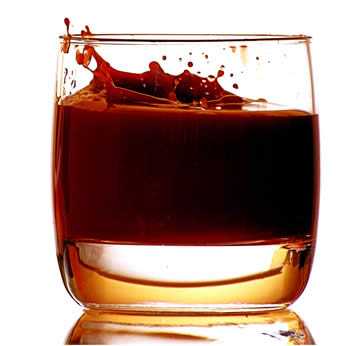 Goji contain special
Goji contain special